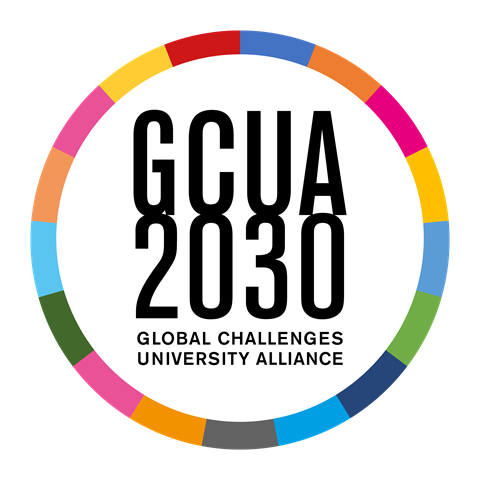1. Agenda 2030: Synergies, conflicts, and assessment tools (1.5 credits) March 2022 - Paul Egan
The aim of this course is to allow the students to familiarise themselves with the UN Sustainable Development Goals (SDGs) and to get an understanding of their implications for higher education and research. The course will foster awareness and understanding of different perspectives and priorities regarding sustainability in its three dimensions – social, economic and environmental – and in doing so will also introduce students to possibilities for further in-depth study in additional GCUA2030 courses (see below). The course will provide guidance on how to constructively identify and approach goal conflicts and discuss trade-offs and synergies central to achieving the SDGs. The students will apply tools that will help them to analyse and plan research projects that have potential impact with regards to the SDGs.
2. Working and communicating across cultures (1.5 credits) April 2022 - Natalie Jellinek
The aim of this course is to allow the students to familiarise themselves with how intercultural competence and communication might impact and contribute to the work towards the SDGs. The course will foster awareness and understanding of different perspectives and priorities regarding sustainability, especially from the social dimension – starting from the individual and considering how one’s own ways of thinking and doing might affect and be affected by culture. How does our own “individual backpack” influence the way we work across academic, professional, disciplinary and/or background cultures?
Working towards the implementation and achievement of the SDGs will require increased collaboration across borders, universities, and disciplines. This course will explore the meaning of culture in different contexts and its potential impact on international collaboration and teamwork, while also considering teaching and learning implications.
3. Education for sustainable development: Teaching for sustainability (1.5 credits) May 2022 - Peter Aspengren
The aim of this course is to allow the students to get a start to prepare for teaching in higher education in a way that strives toward the SDGs. The point of departure is the concept Education for sustainable development (ESD).
ESD is about what to teach, how to teach and how to interact with students. In this course, the student will start planning his/her teaching considering the environmental, social and economic sustainability perspectives in its research/subject area context, linking theoretical facts to real-life issue. We are going to work to try to understand how to teach in a global context where the seemingly objective world of research interacts with a world full of attitudes, values and agendas.
4. Designing research with impact using the Theory of Change approach (2.0) June 2022 - Isabel Vogel
The aim of this course is for the students to learn how to apply the Theory of Change (ToC) approach that will allow them to plan for impact in research projects and help them analyse and describe potential impact of research.
Translating research into action is important for achieving the SDGs. This course will cover aspects on how scientific knowledge can be translated into action by using the concept of ToC, and principles for tracking research impact. PhD students will apply the ToC framework on their own research projects to learn how to design, plan, manage and revise research projects for increased impact and relevance.
More information about each course will come in January
